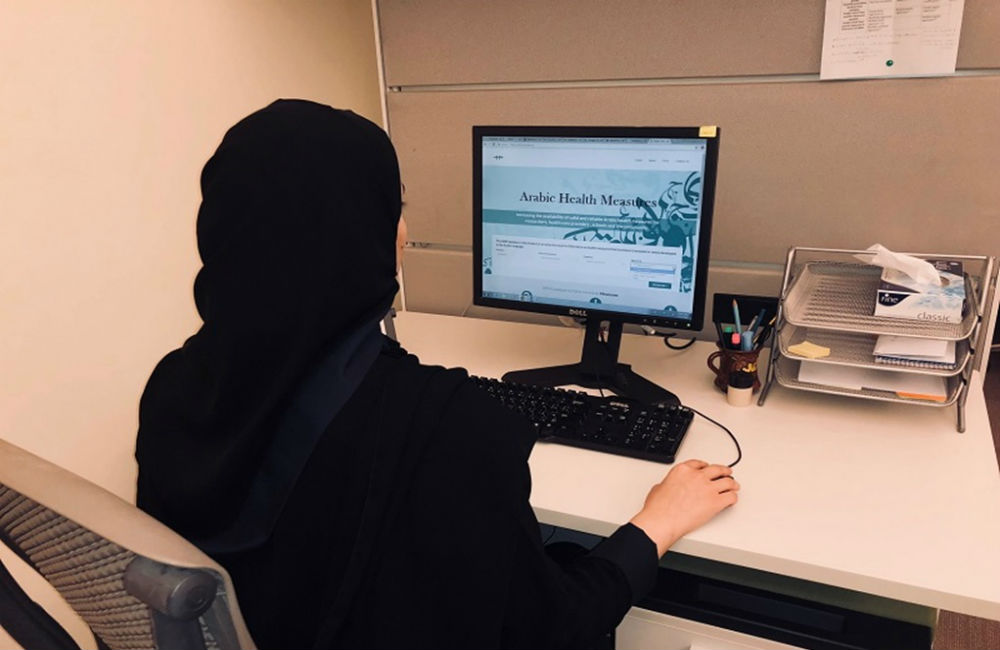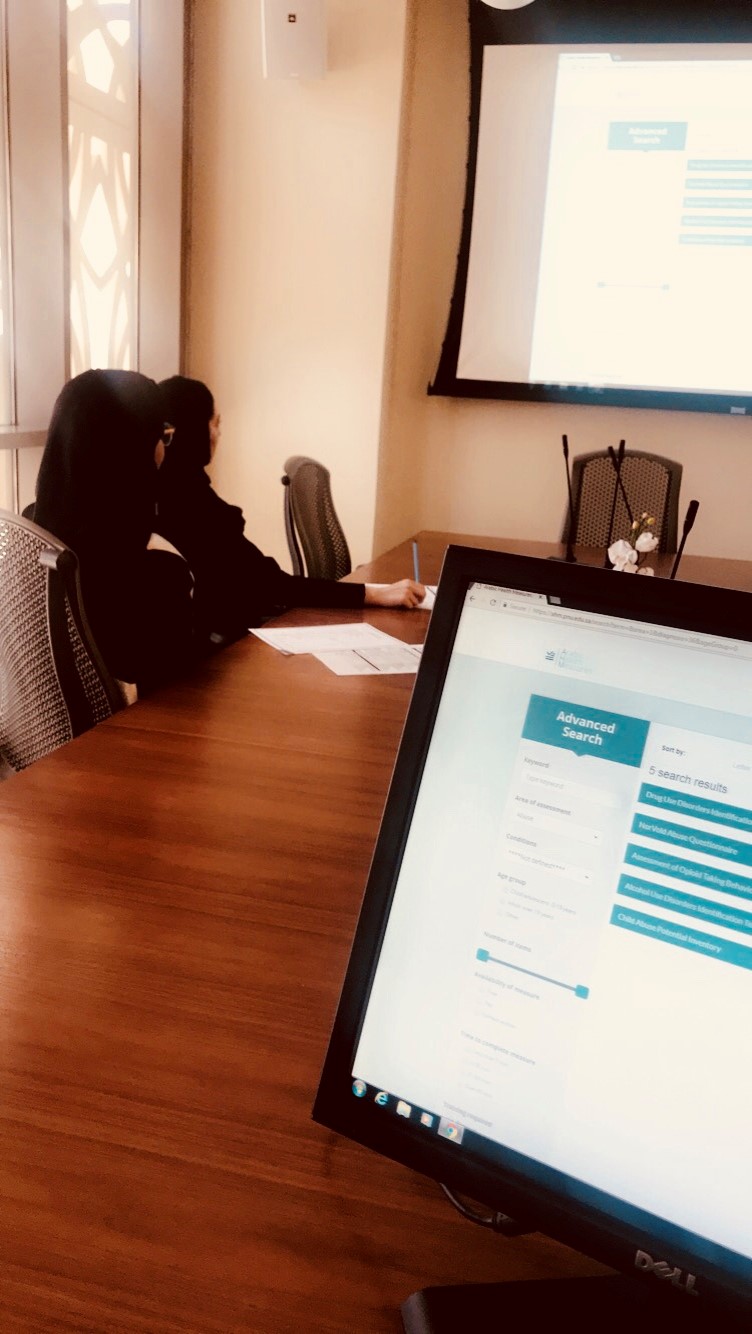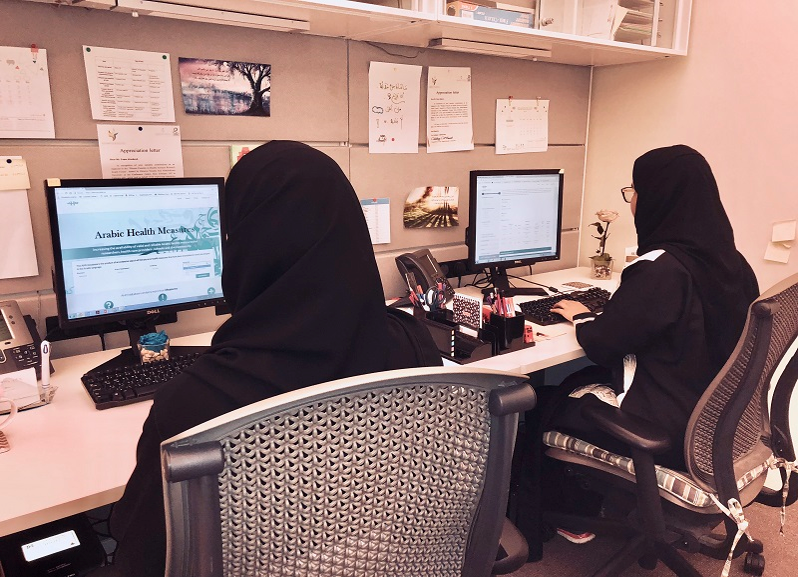About Arabic Health Measures


Health surveys are an important research tool and may collect data on a variety of constructs
ranging from physical functioning to psychosocial wellbeing. They may be used for screening, diagnosis, measuring outcomes and other functions.
The use of health surveys is rapidly extending from the realm of research to the clinical, academic and commercial settings. While comparability of
health survey data across varying populations is vital, this has been challenging in part due to variation in survey methodology and the lack of
standardization of health instruments. As language can greatly affect the psychometric properties of an instrument, validated versions of such
instruments in the native language of the user is key to promoting their use and ensuring valid outcomes.
While Arabic is the fifth most common language in the world, the number of validated Arabic health measures appears to be scarce. In addition,
access to available measures also poses an additional obstacle. This program aims to develop the first comprehensive Arabic Health Measures database (AHM)
which can assist users in their selection, access and appraisal of instruments. It also aims to increase the number of valid Arabic health measures
by providing guidelines for translation and validation of instruments and opportunities to collaborate with other researchers to conduct such projects.
The AHM database is a product of an extensive literature search for articles that translate, validate, adapt or develop health measures in the Arabic language. This included multiple health literature databases such as Pubmed, CINNAHL and EMBASE databases. Both published articles and abstracts were included. The King Fahad National Library database (Riyadh, Saudi Arabia), which includes literature from Saudi post graduate students, was also searched for unpublished work including thesis and manuscripts. A second search was conducted using the names of prominent authors and cross-referencing. Two epidemiologists then reviewed the articles found and excluded duplicates and those articles not meeting the inclusion criteria. A second team of epidemiologists then extracted various information from the article and entered it into a database. This included the article abstract, the name of the measure, sample size, age range, and the population or condition used to test the measure. Information on the methodology used in the article is also described with links to the article. Information on the measure was then added including a description of the measure, the area of assessment and conditions it was designed to evaluate and the age group for which it is to be used. The number of items and time to conduct the measure was also added, when available. Access to the measure is via a link to the measure or by contacting the first author of the article. AHM have attempted to provide the email for the author of the measure in order to facilitate access. A future publication will further elaborate on the methodology used to develop the database and the results of the search. The database will be updated annually using the same procedure described.
The database allows users to search for measures according to keywords, particular areas of assessment or by conditions. It then provides
a list of possible measures available in Arabic. Information on the measure available on the database include its description, the areas
of assessment and conditions it is used for, the age range
for which it was developed, the number of items and time to conduct the
measurement and how to access the instrument . AHM also provides a summary of the literature which describes how the measure was
developed into Arabic. As our goal is to assist users to attain the Arabic version of the measure, we have provided a link to any
tool which is freely available on-line. If the measure is not freely available on-line, we have provided the contact information for
the author / institute that you may contact for permission to have access to the measure.
For more information on how to use the database see How to use the database.
DISCLAIMER: The database describes the methodology used in the studies however the AHM team has not conducted a review of the quality of the studies used to develop these measures therefore it is to the users discretion to review the literature and assess if the measure meets their needs and standards. Inclusion of a measure into the database does not constitute an endorsement by AHM.
We are committed to abiding by copyright laws and therefore cannot provide direct access to articles or measures which are not open-access. We hope, however, that this database will facilitate the users search for information and access to the appropriate measurement tools by providing information on the tools available and the contact information of the author. For comments or more information on how the database was developed please contact us at hsrc-ahm@pnu.edu.sa
If you are looking for a specific measure and cannot find it in the database you may contact us (hsrc-ahm@pnu.edu.sa) and we will add it to our users measures wish list where researchers may be prompted to choose your measure for a translation and validation project.
This unique program aspires to be the leading center for the development of high quality validated Arabic Health measures. The program provides training workshops on the translation and validation of instruments and collaborates and assists researchers in development of Arabic measures. There are several current projects being conducted by the Health Sciences Research Center. If you would like to collaborate or learn more about the program please contact us hsrc-ahm@pnu.edu.sa
A list of definitions of the terms used in this website is available in Glossary of terms page.
AHM Team
The AHM database was developed by a team of epidemiologists and IT specialists from the Health Sciences Research Center at Princess Nourah bint Abdulrahman University . Work on the database began in April 2017 and the website was launched in October 2018.



Acknowledgment